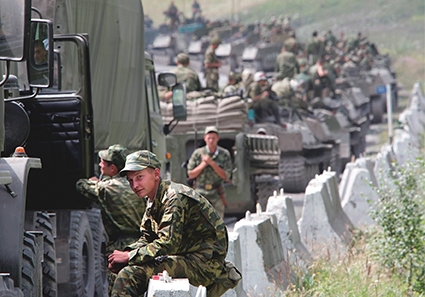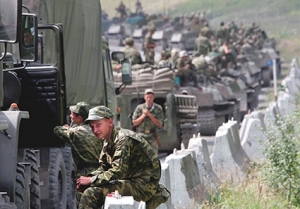Russia Keeping Georgia within Its Sphere of Influence
This week has seen Georgia and, to a lesser extent wider society, turn its mind back eight years to the August 2008 war between Russia and Georgia. We spoke to Laura Linderman, a Research Fellow with the DinuPatriciu Eurasia Center at the Atlantic Council in Washington DC about reasons and de-facto results of the Russia-Georgia war.
What precipitated the military activities in Georgia back in 2008 and could the military conflict have been avoided by timely western mediation?
In the years leading up to the 2008 war, South Ossetia was considered a “frozen conflict” that had little potential to erupt. The UN and the OSCE were tasked with aiding the peace effort and bringing stability to the area. Unfortunately, these organizations did not coordinate well with each other or expend significant resources to fix the situation. Arguably, the worst decision, however, was to allow the CIS to act as the local peacekeeper. Because Russia is in the UN Security Council, the peace initiatives were often hindered or stalled. The Georgian government proposed a federal solution to South Ossetia’s status but was blocked by Russian and South Ossetian establishments. The Georgian government also fought to change the peacekeeping operation, without success. During these years, there were opportunities to improve the situation in South Ossetia and commit all sides to refraining from war but they weren’t taken up. Russian provocations in the region were numerous in the 1990s and 2000s and the Georgian authorities continually restrained themselves during these incidents. In the spring and summer of 2008, Georgian leadership repeatedly alerted western governments that Russia was preparing for war and they had evidence of it. These warnings were largely ignored.
What was Russia’s ultimate goal when entering Georgia? Could the West have been more united in its response to the violation of Georgian sovereignty and sanctions instituted against Russia?
Russia used the war as a tool to try to prevent Georgia from further strengthening its ties with the West, such as further integration with NATO and the EU. Its goal was and is to keep Georgia firmly within its sphere of influence. South Ossetia and Abkhazia are also used as bargaining chips by Russia to try to influence Georgia’s domestic policy. Russia has solidified its control over the regions by slowly increasing its military presence there and undertaking a borderization practice. Georgia’s hope for regaining control of these territories seems more remote than ever.
Additionally, one can see the 2008 war with Russia as interconnected with other frozen conflicts in the region such as in Transnistria. Part of Russia’s foreign policy pattern is to maintain frozen conflicts to increase the Kremlin’s leverage over states it sees as part of its sphere of influence. These separatist areas become grey zones that serve to destabilize the states they occur in.
Did the lack of western response embolden Russia to invade Ukraine in 2014?
Yes. The United States and EU confined their response to Russia to strong words – rather than something more significant, such as sanctions. The lack of a strong response from the West may have emboldened Russia to act in Ukraine.
What are the lessons learned for Georgia and the West? What are the repercussions or effects for regional and world geopolitics?
Russia’s leaders have repeatedly insisted on a sphere of influence in the post-Soviet space. The war underlined the major security challenges Georgia faces. For a small country, national security is linked to survival – a poor decision can have outsized implications. The war reinforced Georgia’s western orientation, but it also exposed the West’s lack of dependability. If we look at how the West responded to Russian actions in Ukraine, which was to seemingly accept the annexation of Crimea, we can see that western powers will likely not be much help to Tbilisi with regards Abkhazia and South Ossetia. The United States and Europe will continue to support a policy of non-recognition but likely will not be much more help than that.
Russia was successful in launching a disinformation campaign after the 2008 war. It had an effect on German public opinion and Russia has increased these media and misinformation campaigns in the time since the war because of this success.
Anna Kalandadze, Voice of America Georgian Service












